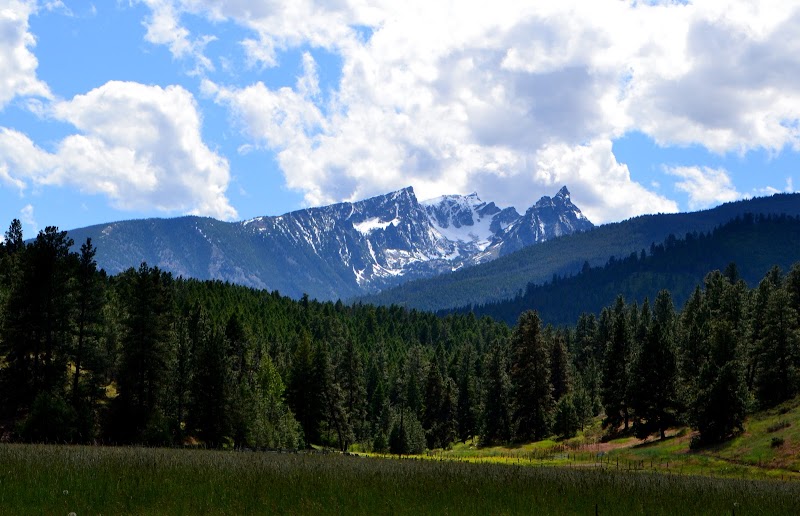
Bitterroot National Forest Adventures
Bitterroot National Forest spans the western slopes of Montana and extends into Idaho, offering unparalleled opportunities for outdoor recreation in a pristine wilderness setting.
Popular Activities
Discover the Allure of Bitterroot National Forest: An Angler’s Paradise
Embrace the untamed spirit of Bitterroot National Forest, spanning across the majestic landscapes of western Montana and a slice of Idaho. This adventure-infused haven is a sanctuary for those yearning to wield their fishing rods amid nature’s grand spectacle. As the sun rises over sprawling woodlands, step into a realm where rivers are more than mere watercourses—they are lively wanderers, threading their way through the forest, inviting you to cast your hopes into their depths.
The Bitterroot River, teeming with the promise of trout, calls to the angler’s heart. Renowned for its gentle yet challenging flow, the river offers an engaging experience that tests both skill and patience. Here, each bend of the stream may unveil a spirited cutthroat or a lurking rainbow trout, the current encouraging your lure to dance across its surface. For success, come armed with 4-6 pound lines and a selection of dry flies; nature rewards those who come prepared.
The forest’s alpine lakes, like shimmering jewels embedded in mountain cradles, provide serene settings for a different kind of challenge. The crisp, reflective waters of Como Lake, Trapper Peak casting a serene silhouette across the horizon, welcome anglers in search of solitude and serenity, offering glimpses of grayling and cutthroat beneath the glassy surface. A fishfinder can elevate this experience, granting insight into these pristine waters where fish play hide and seek beneath submerged logs.
Flat Creek, hiding amid dense pines, whispers of brown trout hidden in its shadows. The inundation of sensory delights—the earthy aroma of pine needles, the rustle of leaves, the resonant splash of a leaping fish—draws you deeper into the forest’s embrace. Light tackle is key, allowing a more tactile connection to each subtle nibble and aggressive strike. This is where technique meets wilderness, where the angler moves with precision and patience through this verdant labyrinth.
Camping is quintessential in this wilderness, turning the fishing trip into a multi-day escape. The Darby Dispersed Campground stands ready to host weary adventurers beside singing waters. Here, after a day's catch, gather around a crackling fire to share tales of triumph and near misses, the stars spinning stories of their own against the night sky. This camping refuge, easily accessible and dotted with basic amenities, is a pragmatic choice for those who prefer comfort amid the wild.
Safety and awareness are crucial companions on this journey. The Bitterroot’s unpredictable weather, transforming skies from sapphire blue to stormy slate in the blink of an eye, demands respect and readiness. Pack layers, as temperatures can oscillate dramatically from morning to noon to night. Water, often an afterthought, should be a constant companion to stave off dehydration, especially at higher elevations where thin air can surprise even seasoned explorers.
Before embarking on this adventure, secure a fishing permit and familiarize yourself with the region's regulations, crafted to preserve this untouched wilderness for future adventurers. Seasoned guides are available for those who seek added insights or company on their journey, offering a bridge from curious novice to confident angler.
Ultimately, Bitterroot National Forest stands not just as a destination, but as an experience—a lively dialogue between humans and nature where every cast is a question and every catch a revelation. Here, in this expanse of possibility, adventure unfurls with each step, each cast, each breath drawn deep with the scent of wild, untamed earth. As your escape into Bitterroot’s wild embrace concludes, it leaves an indelible mark, whispering promises of the adventures yet to come.
Plan Your Visit
Everything you need to know to prepare for an unforgettable trip to Bitterroot National Forest.
Entrance Requirements
No fees for entry, but permits are required for certain areas.
Best Time to Visit
Summer and early fall offer the best conditions for hiking, camping, and fishing.
Visitor Information
Sula Ranger District, Darby Ranger Station, Stevensville Ranger District
Getting There
Accessible via U.S. Highway 93 with some forest roads requiring high clearance or 4WD.
Weather & Climate
The forest experiences a mixture of climates, with hot summers and cold, snowy winters. Thunderstorms occur frequently in summer, while winter conditions can lead to deep snow and road closures.
Conservation Efforts
Challenges include wildfire management, invasive species control, and habitat protection for endangered species like bull trout and Canadian lynx.
Camping in Bitterroot National Forest
Find the perfect spot to stay overnight and immerse yourself in the details.
Lake Como Campground
Located near Lake Como, popular for swimming and boating with scenic views.
Sam Billings Memorial Campground
Nestled in the Bitterroot Valley offering pristine tent sites under tall trees.
Top Trails
Blodgett Canyon Trail
Follows the Blodgett Creek through a grand canyon with stunning vertical cliffs.
Trapper Peak Trail
A challenging hike to the summit, providing breathtaking views of the Bitterroot Range.
Bear Creek Overlook Trail
An easy hike leading to a stunning overlook of the Bitterroot Valley.
Lake Como National Recreation Trail
Circumnavigates Lake Como with diverse scenery and opportunities for wildlife viewing.
Trailblazer Tips
Be prepared for sudden weather changes in the backcountry due to the forest's varying elevations.
Visit in late spring or early fall to avoid the summer crowds and enjoy pleasant temperatures.
Permits are required for some wilderness areas; check regulations before heading out.
Carry bear spray and know how to use it; wildlife encounters are possible throughout the forest.
